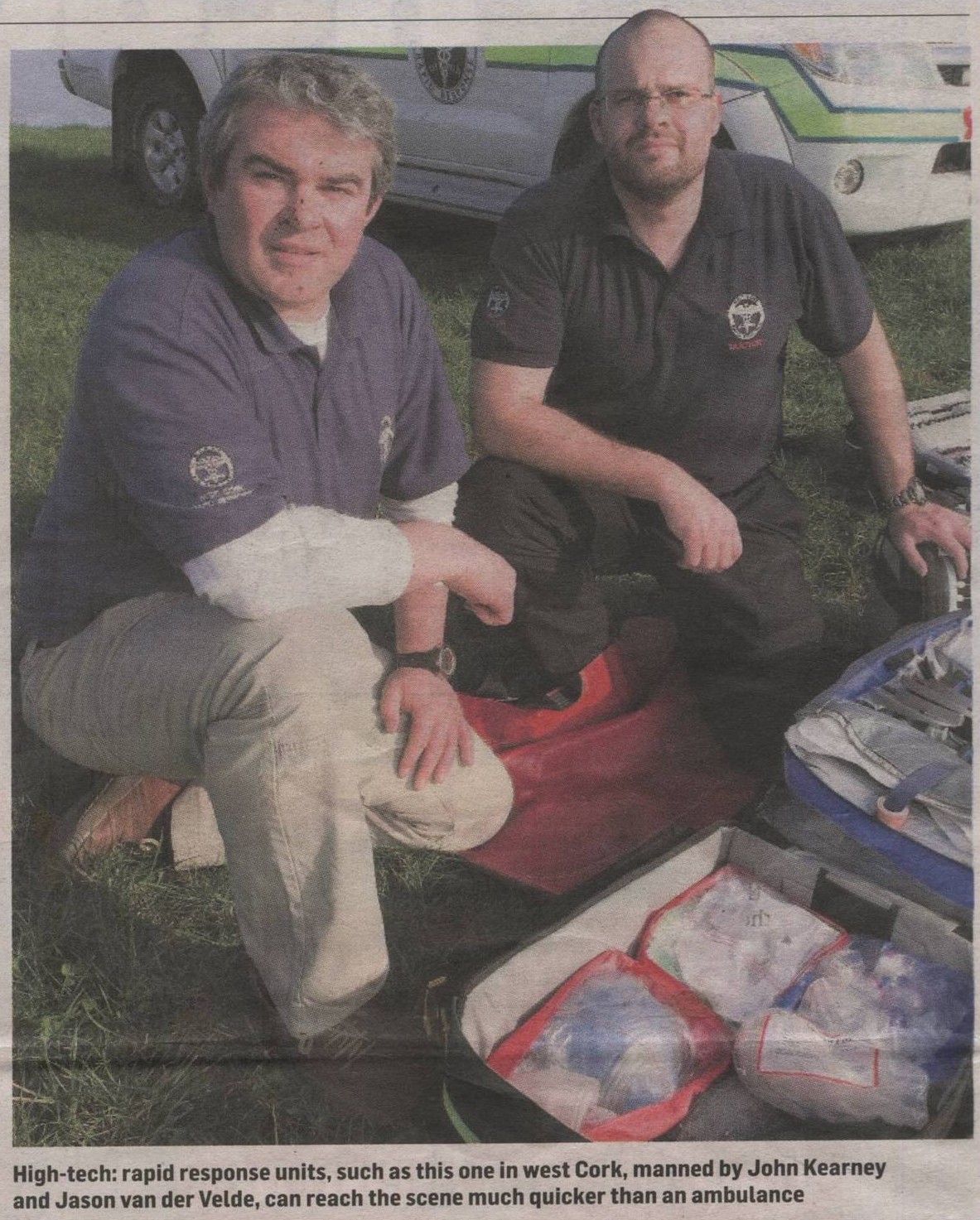
Irish Independent, Health and Living Supplement published Monday, July 25th, 2011.
Article written by Eilish O’Regan (Health Correspondent)
Survival for a patient in a life threatning emergency can be all about getting to a major hospital as quickly as possible. The recent controversy over the removal of A&E services from Roscommon hospital, with patients diverted to other hospitals in the region, has spotlighted the need for a rapid ambulance transport system. More hospitals are set to lose their A&E services and timing will be crucial for patients living in rural areas, faced with long journeys and bad roads, if they need to get to a major centre.
Rapid Response vehicles, also known as “fly cars” will be key to supporting the general ambulance fleet in these emergencies, but they are relatively new to Irish emergency services. They have high-tech equipment, are staffed by highly trained advanced paramedics – those that could give clot-busting drugs to a heart attack patient – and can reach the scene much quicker than a standard ambulance. So how many of these life-saving inventions are rolled out across the country ? There are currently four rapid response vehicles staffed by advanced paramedics on a 24 hour basis. They serve Bantry, Nenagh, Ennis, Monaghan and Roscommon. There are a number in other parts of the country and “these are deployed as required”, according to the health minister James Reilly.
The plan is to have another in the Dublin mid-Leinster area by the end of the year. In addittion to the rapid response vehicles, there are three motorcycle response units (MRUs) serving the Dublin area, seven days a week. The minister who was replying to Meath Labour TD Dominic Hannigan, said the cost of training a member of the ambulance staff to become an advanced paramedic is around €127,000.00. Overall, he said, the national ambulance service is working to improve it’s services. Meanwhile the Health Service Executive (HSE) West has responded to fears that a patient bleeding heavily can no longer be brought to Roscommon Hospital for a blood transfusion. A spokesperson said that if a patient is bleediing externally, paramedics and advanced paramedics are trained to control it. “In addittion, advanced paramedics can give intravenous fluid to temporarily replace blood loss, whether internal or external”. “However, patients with bleeding, especially internal bleeding, need to get as rapidly as possible to a hospital which has approved surgical capeability to stop the bleeding. “Stopping at another facility to obtain blood would involve unacceptable delay”, said the spokesperson.
© 2009-2024 West Cork Rapid Response | Call 087 4153285 | Email Us | Responsive Website Design | Login